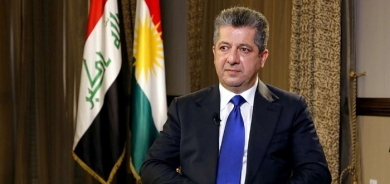Why ISIS Has an Abundance of Modern Weapons

There should be searching questions about how the insurgents acquired such extensive firepower. Western officials insist that most of the weapons fell into rebel hands when Baghdad government troops unexpectedly panicked and fled their positions in Mosul and other areas that ISIS forces then overran. That was no doubt one source of the weaponry, and one that especially chagrined U.S. policymakers, since most of the hardware given to Nouri al-Maliki’s government came from the United States. Now, a horrified Obama administration sees American-made weapons strengthen the capabilities of an especially ruthless terrorist organization.
But the official explanation about the origin of ISIS’s arsenal is incomplete. Arms captured from the Iraqi military certainly enhanced the capabilities of the organization’s combat units, but that was not the only source of sophisticated hardware. Saudi Arabia and Qatar have helped fund and supply Sunni tribal militias in Iraq for years, and some of those factions have now allied with ISIS. In addition, those two governments (along with Turkey) openly provided military aid to rebel forces in Syria seeking to overthrow the government of Bashar al-Assad. Despite the effort by Washington and other capitals to portray the Syrian insurgents as moderate, secular types, that description was accurate only with respect to some of Assad’s opponents. It became increasingly evident that a large percentage of anti-Assad elements were religious zealots whose goal was to establish Sunni Arab dominance over Alawites, Kurds, Christians, and other ethnic and religious minorities in Syria. And, as in the case of Iraq’s Sunni Arab tribes, many of those factions became part of the ISIS-led coalition that now threatens to create an extremist caliphate encompassing major portions of both Iraq and Syria.
That development should be a major embarrassment for Washington and its NATO allies, who naively idealized the Syrian insurgency. Indeed, Saudi Arabia, Qatar, and Turkey were not the only countries that provided aid to (supposedly moderate) rebels in that country. The United States did so as well, and that assistance has backfired badly, strengthening the power of ISIS. Washington’s meddling in Syria has helped create a geopolitical monster. ISIS now poses a serious threat not only to Assad’s regime, which although repulsive, is a lesser evil than its militant adversaries, but also to both the Baghdad government and the Kurdish regional government (KRG) in Iraq. Maliki’s government is at least nominally democratic and pro-Western, and the KRG is decidedly so. They are certainly far preferable to any regime that ISIS would create.
This policy fiasco should be a cautionary note to U.S. leaders who arrogantly believe that they can select cooperative clients in other countries and keep them in line. The rise of ISIS demonstrates how such support can be misplaced and boomerang against Western interests and goals. The Syrian rebels and their Saudi, Qatari, and Turkish backers successfully mislead gullible U.S. officials. Pro-democratic factions in Iraqi Kurdistan and the rest of Iraq are now in danger of paying a heavy price for Washington’s blunder.
Ted Galen Carpenter, a senior fellow at the Cato Institute and a member of the editorial board at Mediterranean Quarterly, is the author of nine books and more than 550 articles and policy studies on international affairs.

 Ted Galen Carpenter
Ted Galen Carpenter






